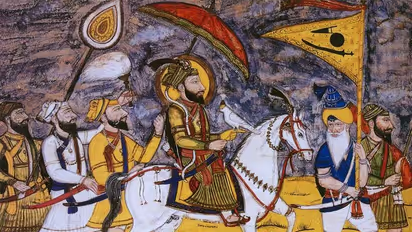
The Sikhs across the world are celebrating the 352nd birth anniversary of the tenth Sikh master, Guru Gobind Singh on January 13.
As thousands of devotees visited gurdwaras across Punjab, Haryana and other places in the country, there are some teachings of the great Sikh leader which can be imbibed only through great determination and complete faith in goodness and virtue.
Here are five teachings of Guru Gobind Singh which everyone should follow.
Even after Guru Gobind Singh became the 10th Guru, he continued his education both in reading and writing as well as martial arts, including horse riding and archery. In 1684, he wrote the Chandi di Var based on an episode from the Sanskrit work Markandeya Purana. It talked about the conflict between the Gods and the Demons and how the good always stood up against injustice and tyranny of the bad.
Guru Gobind Singh not only founded the Khalsa, but came up with a set of rules for the warriors of the Khalsa. Anyone from any caste was free to join the Khalsa which institutionalised the principle of equality in Sikhism. Also, fornication, adultery, tobacco and eating ‘halal’ meat was banned for the followers.
Guru Gobind Singh stood like a wall in front of the Mughal empire which grew hostile against the Sikhs. The leaders firmly believed that one must be always prepared to die to stop tyranny and defend one's own religious values.
Guru Gobind Singh and his Sikh warriors fought in as many as fourteen wars but never took captives and never damaged anyone's place of worship.
Guru Gobind Singh believed that Aurangzeb was an unethical and unjust leader and his war against the Sikhs was a betrayal of a promise. After the battle of Muktsar, where all the sons of the Sikh Guru were killed by the Mughals, he wrote a letter titled Zafarnama to Aurangzeb.
In the stern yet conciliatory letter, the Guru accused the enemies of a lack of morality both in governance and in the conduct of war. He also predicted that the Mughal empire will soon collapse as it is full of abuse, falsehood and immorality.